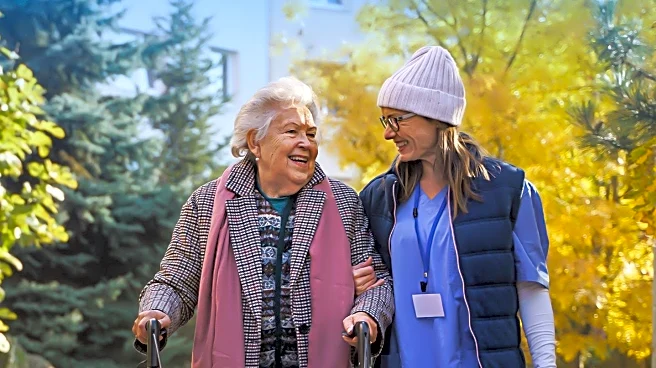What's Happening?
Misericordia Place, a care home in Winnipeg, has introduced a new initiative called the 'Life Advice Line.' This service allows individuals to call in and receive free advice and perspectives from the home's residents, who are seniors with a wealth of life experience. The initiative aims to provide callers with valuable insights and guidance on various life issues, leveraging the wisdom and experiences of the elderly residents. The program is designed to foster intergenerational communication and support, offering a unique opportunity for people to connect with seniors and benefit from their knowledge.
Why It's Important?
The 'Life Advice Line' initiative is significant as it addresses the often overlooked value of senior citizens' experiences and wisdom. By facilitating communication between generations, the program not only enriches the lives of those seeking advice but also enhances the sense of purpose and community among the elderly residents. This initiative can potentially reduce feelings of isolation among seniors, providing them with a platform to share their stories and insights. Moreover, it highlights the importance of valuing and integrating the perspectives of older adults into societal discourse, which can lead to more informed and empathetic communities.
What's Next?
The success of the 'Life Advice Line' could inspire similar programs in other care homes and communities, promoting broader intergenerational dialogue. As the initiative gains traction, it may attract attention from policymakers and social organizations interested in enhancing community support systems. Future developments could include expanding the service to include virtual calls or integrating it into educational programs, further bridging the gap between generations and fostering mutual understanding.
Beyond the Headlines
This initiative also touches on ethical considerations regarding the treatment and perception of elderly individuals in society. By actively involving seniors in community services, it challenges stereotypes about aging and promotes a more inclusive view of their role in society. Long-term, such programs could contribute to shifting cultural attitudes towards aging, emphasizing respect and appreciation for the contributions of older adults.










